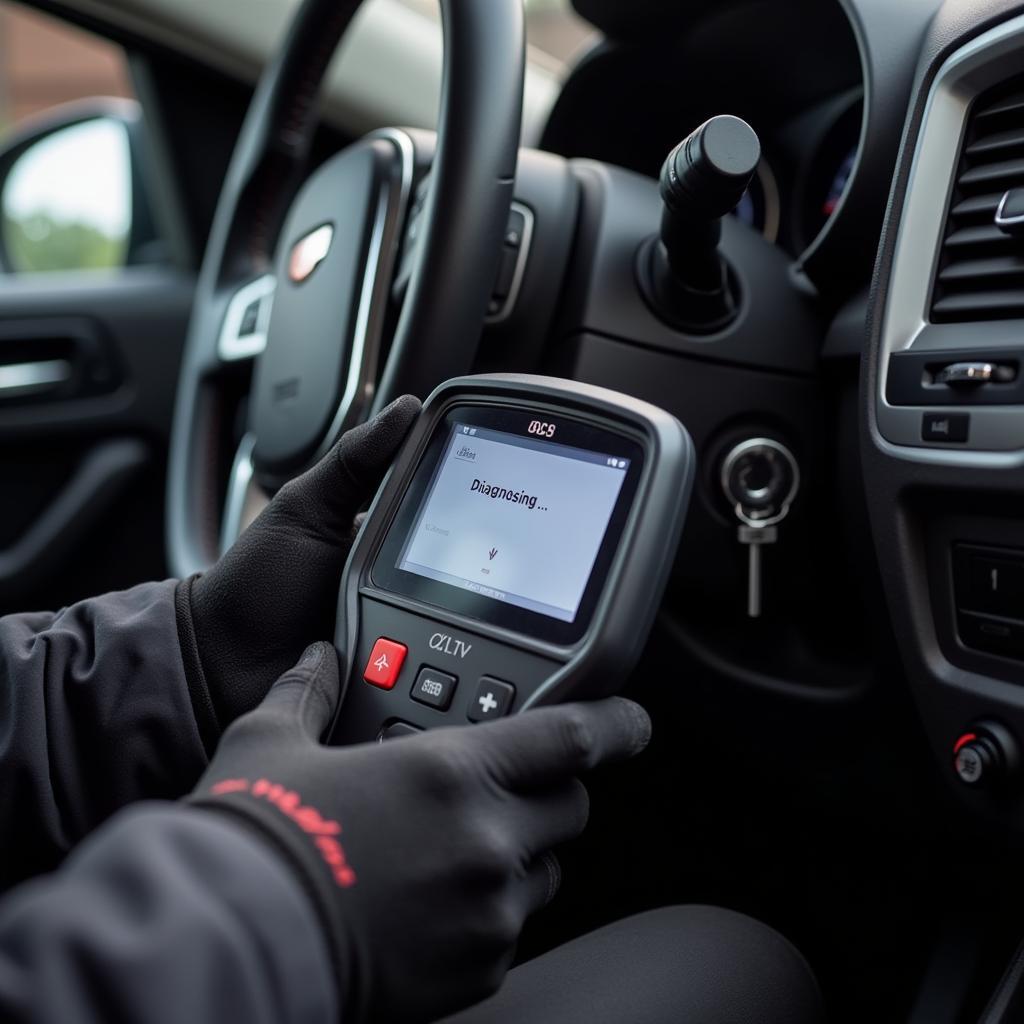Modern vehicles are increasingly reliant on complex electronic systems. This can be overwhelming for car owners wanting to understand what’s going on under the hood. That’s where car diagnostics come in. Whether you’re experiencing a “check engine” light or simply want to be proactive about your car’s health, using diagnostics can be incredibly beneficial. This guide will explore the reasons why a buyer wants to use diagnostics on their car and how it can save them time, money, and unnecessary headaches.
Why Use Car Diagnostics?
Car diagnostic tools have evolved from complex equipment used exclusively by mechanics to user-friendly devices accessible to everyday car owners. This shift is largely driven by the increasing demand for transparency and control over vehicle maintenance.
Here are some compelling reasons why more and more buyers are turning to car diagnostics:
- Early Problem Detection: Diagnostic tools can identify potential issues before they escalate into major (and expensive) repairs. This proactive approach can save you significant money in the long run.
- Accurate Fault Identification: Gone are the days of relying on guesswork to pinpoint car problems. Diagnostic tools read your car’s computer, providing specific error codes that pinpoint the exact location and nature of the issue.
- Transparency and Peace of Mind: Understanding the source of a problem can empower you to make informed decisions about repairs, whether you choose to DIY or consult a mechanic. This transparency fosters trust and helps avoid unnecessary services.
- Cost Savings: By identifying problems early on, you can avoid costly repairs that might arise from neglecting minor issues. Additionally, you can save on diagnostic fees often charged by mechanics.
- Improved Vehicle Performance: Regular diagnostics can help you monitor your car’s overall health, optimize fuel efficiency, and ensure all systems are functioning optimally.
 Early Problem Detection with Car Diagnostics
Early Problem Detection with Car Diagnostics
What to Look for in a Car Diagnostic Tool
Not all car diagnostic tools are created equal. When choosing a tool, consider your needs and level of technical expertise. Here’s a breakdown of the options available:
1. Basic Code Readers:
- Ideal for: Car owners who want a simple way to read and clear basic engine codes (including that pesky “check engine” light).
- Features: Typically display error codes, definitions, and sometimes offer the ability to reset the check engine light.
- Price Point: The most affordable option.
2. OBD2 Scanners:
- Ideal for: Those who want more in-depth information beyond basic code reading.
- Features: Offer live data streaming, allowing you to monitor engine parameters, emissions data, and other sensor readings in real-time.
- Price Point: Mid-range, offering good value for their functionality.
3. Professional-Grade Diagnostic Tools:
- Ideal for: Mechanics and advanced DIYers who need comprehensive diagnostic capabilities.
- Features: Advanced functions like bi-directional control (to test components), coding and programming capabilities, and access to manufacturer-specific data.
- Price Point: The most expensive option, but with a wider range of advanced features.
Making the Most of Car Diagnostics
Finding the right car diagnostic tool is just the first step. To fully leverage its potential:
- Understand the Basics: Familiarize yourself with basic car mechanics and the meaning of common error codes.
- Invest in Quality: Choose reputable brands and models known for their accuracy, reliability, and ease of use.
- Regular Checks: Incorporate diagnostic scans into your regular car maintenance routine, such as during oil changes or seasonal checkups.
- Combine with Other Resources: Use diagnostic information in conjunction with online forums, repair manuals, or consultations with mechanics for a holistic approach to car care.
Conclusion
The ability to understand and address car issues is no longer exclusive to mechanics. By embracing car diagnostics, buyers can take control of their vehicle maintenance, save money, and enjoy peace of mind knowing they are equipped to handle whatever comes their way. As technology continues to advance, car diagnostics will only become more user-friendly and essential for any car owner.
FAQs about Car Diagnostics
1. Will using a car diagnostic tool void my car’s warranty?
No, using a car diagnostic tool itself will not void your car’s warranty. These tools simply read the data that your car’s computer generates.
2. Can I fix any problem myself using a car diagnostic tool?
While diagnostic tools can pinpoint the source of the problem, they don’t actually fix it. Some issues might be simple DIY fixes, while others might require the expertise of a mechanic.
3. Are car diagnostic tools universal?
Most cars manufactured after 1996 in the US are equipped with an OBD-II port, which most diagnostic tools are compatible with. However, some vehicles might require manufacturer-specific adapters or software.
4. How often should I use a car diagnostic tool?
It’s a good practice to run a diagnostic scan at least every few months or whenever you notice unusual performance issues with your car.
5. Can I use a car diagnostic tool on other vehicles?
Yes, most car diagnostic tools can be used on different makes and models of vehicles, as long as they are compatible with the OBD-II standard.
Still Have Questions?
For expert advice on choosing the right full system car diagnostic tool, explore our comprehensive reviews and comparisons. We’re here to help you make informed decisions about your car’s health!
Consider these additional resources on DiagFixPro:
Need Personalized Assistance?
Contact our 24/7 support team via WhatsApp at +1(641)206-8880 or email us at [email protected]. We’re here to answer your car diagnostic questions and guide you towards the best solutions for your needs.

Leave a Reply